Mysore/Mysuru: Bemoaning that we are currently speaking about Gujarat and Kerala development models, while ignoring our own Old Mysore Model, which still stands today as one of the best models of governance, University of Mysore Political Science faculty Prof. Muzaffar Assadi said that the Mysore Model is aimed at building an all inclusive and equal society.
He was speaking at the release of HMT Lingaraj Urs edited book ‘Ursu Chutuku Hilalugalu’ organised by city’s Anveshana Trust at the Institution of Engineers on JLB Road here on Thursday.
Noting that we are all speaking of Gujarat and Kerala Models, Prof. Assadi maintained that these two models were only limited development Models.
“The old Mysore Model is a Model for everything. The erstwhile Mysore Maharajas strived for an all inclusive society and are also credited for introducing reservation and decentralisation of power. Former Chief Minister late D. Devaraj Urs carried forward the initiatives of the Maharajas and this helped the marginalised sections and micro communities of the society to have access to political power,” he contended.
Titular head of the erstwhile Mysore Royal family Yaduveer Krishnadatta Chamaraja Wadiyar, who spoke after releasing the book, said it is laudable that Dr. MGR Urs, apart from engaging in literary activities, has also involved himself in Ursu Samaja activities.
Pointing out that the city’s Ursu Mandali is celebrating its centenary on Aug. 21, he called upon all community members to actively participate in it.
Karnataka Safai Karmachari Commission Chairman M. Shivanna, who presided over the event, complimented the organisers for getting the book released by Yaduveer Wadiyar and said that the book would not have got such an honour even if the Chief Minister had released it.
Underlining the role of the erstwhile Mysore rulers in Karnataka getting a prominent place in the country’s map, he said that the landless poor have largely benefited from D. Devaraj Urs’ initiative of ‘Uluvavane Bhoomi Odeya’ (the tiller is the owner of the agricultural land), which stands as a model even today.
Earlier, Akhila Karnataka Brahmana Mahasabha Zonal President B.R. Nataraj Jois inaugurated the programme.
Book editor and Ursu Mandali President HMT Lingaraj Urs, Anveshana Trust Hon. Secretary Amarnathraje Urs, Chutuku (Limericks) writer and Rajyotsava awardee Dr. MGR Urs and others were present.



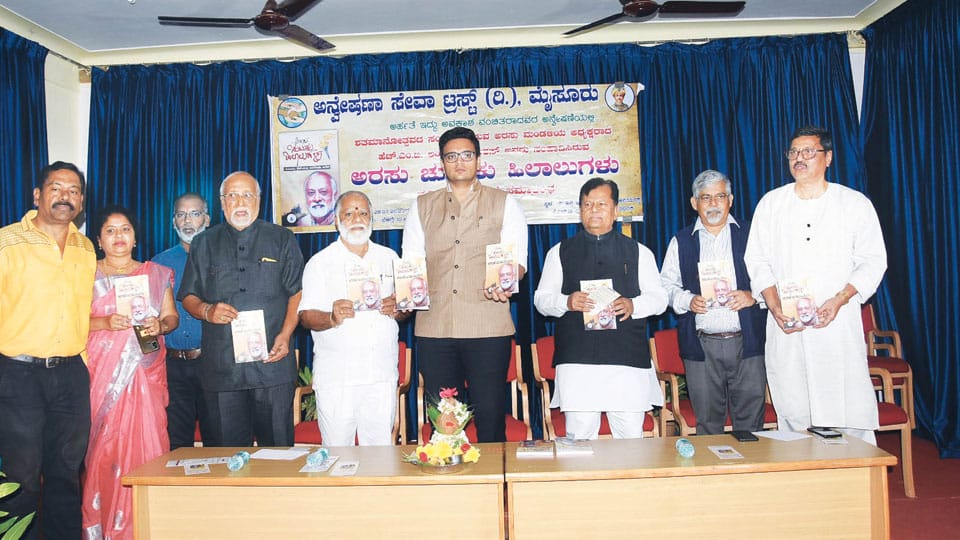
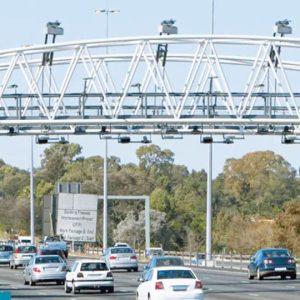
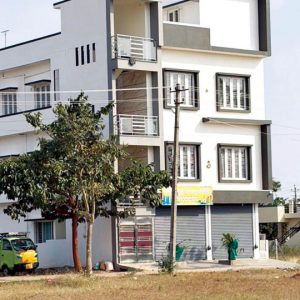
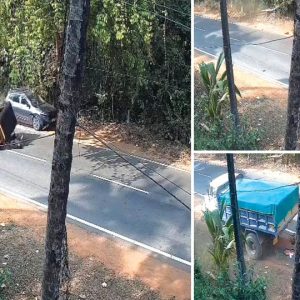
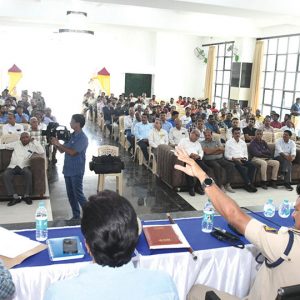
Every Mysorean of the 60s and 70s bemoan the lost beauty and cleanliness of their city, where the then town municipality used to do their duty as laid down by the erstwhile Maharajas. Even the administration was clean, compassionate, and friendly for the city dwellers to live a truly contented life. This was so for that period, though small, yet most healthy and happy time. Then to speak about the contribution of our great Maharajas to the development of their Kingdom is laudable and it is written in golden letters in the history of Karnataka. If only the present people’s representatives take pride in being the forerunners of such great Administrators and Philanthropists, our beloved city and our cherished Karnataka will become the role model for the development of states like Kerala, and Gujarat, not the other way round, to reach the winning line. “Jai Great Wadiyars and Jai Karnataka”.
This political professor fool is deluded in saying: ““The old Mysore Model is a Model for everything. The erstwhile Mysore Maharajas strived for an all inclusive society and are also credited for introducing reservation and decentralisation of power. Former Chief Minister late D. Devaraj Urs carried forward the initiatives of the Maharajas and this helped the marginalised sections and micro communities of the society to have access to political power,”
The Old Mysore state before independence:
This professor idiot forgets that it was the British who really ruled, installing the Wadiyars giving them limited power, after removing the Muslim thug Tipu Sultan. Give them the credit rather than the Wadiyars who had to obey the orders from the British Viceroys, who administered the state through their British Residents in Bangalore. Sir MV knew this power structure very well, and hence, he always cleared his development plans with the British Viceroy of the day.
This so called Old Mysore Model. If this fool meant on the other hand, Old Mysore being the city of Mysore, the Urs community wielded enormous influence at the Palace, and saw to it hat the first wife of JC Wadiyar, who they considered as a foreigner, as she was from Rajput Royalty stock, and hence was an undesirable fearing their influence with the Palace. She was driven out to be replaced by a n Urs woman, who became the second wife of JC Wadiyar. The poor woman visited Mysore years later, and never lost the love of the place. So much about welcoming and equality.
The Old Mysore after independence:
The Old Mysore as the state before Karnataka unification, was no better, after independence. It was ruled successively by corrupt CMs, the most corrupt of them , was Kengal Hanumanthaiah, who swindled cores of Rupees awarding contracts to his friends in the construction of the Vidhana Soudha, whose original budget was exceeded multiple times. His eyewash enquiry about this scandal, cleared him as the enquiry committee consisted of his friends!
As for Devaraje Urs regime as the CM, he tried to install, an Urs in key positions in the state administration, and the Urs installed as the VC of the UOM, had questionable administration capability, besides his questionable honesty in handling university funds. He destroyed further, the already ill-reputed UOM!
@Zheer. Extensions like Nazarbad and nearer areas in the Old Mysore city was full of filth, inhabited by tightly packed Muslim community, who had multiple wives, thanks to their personal laws. These places were Muslim ghettos, and I remember many instances when cholera broke out in these areas, and we were warned in our school not to go to these areas. I remember sitting in a taxi once, the driver too a short drive through Nazarbad, and it looked like a ghetto in Karachi!
The reason Old Mysore city was a good place to live then, was because of the low population, and hence, not many developments; it had with forests surrounding it to give a serene atmosphere; the roads were clean, not many cars and one could use the footpath to walk to reach every where, as the city was small in size.
Indians are breeding like rats, its Muslim population is second only to Indonesia. The population of India is outstripping China.